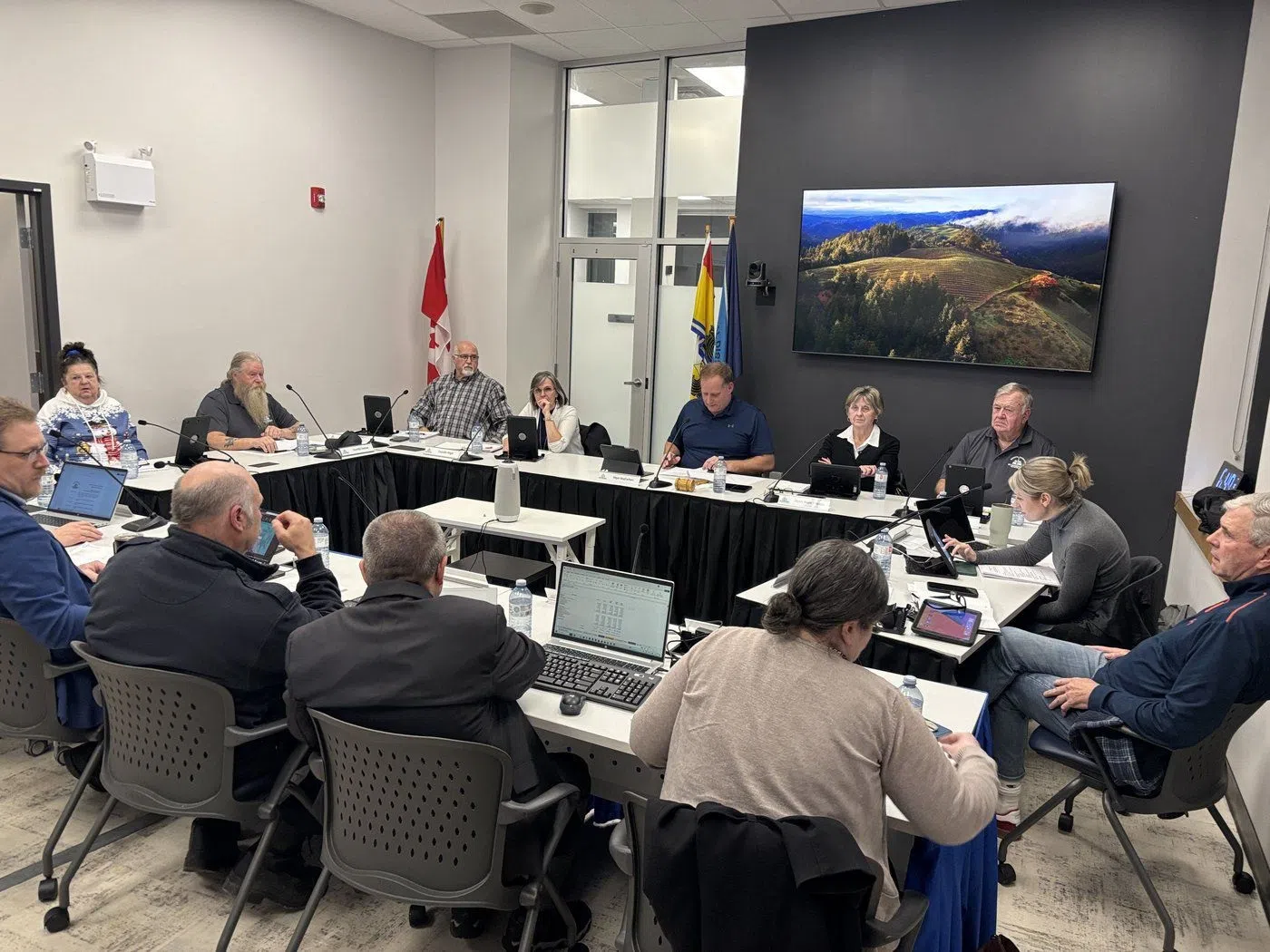The Municipal District of St. Stephen has passed its general and utility budgets.
Council debated, over several committee of the whole meetings, the various priorities for the municipality, including road work, fleet vehicle replacement, and lift station replacement.
Jeff Renaud, the chief administrative officer, presented the final budgets to the council on Dec. 19. The municipal tax base assessment base rose by 8.91 per cent, totalling about $62.45 million.
He highlighted several key achievements this year, including a reduction in tax rates for both St. Stephen’s urban and rural areas, maintaining the 2024 stipends for the mayor and council, and restructuring administrative staff, which resulted in savings of $198,334.
It maintained its community grants at $50,000, which are expected to be given out in the new year.
Funds were allocated for an independent community safety survey, the implementation of a new budget software, and a municipal re-branding survey.
Another $65,281 was transferred to the General Capital reserves for future capital needs and $150,000 was allocated to support economic development.
Roads and streets
Several municipal roads are slated to get some much-needed repair work in 2025.
Fifteen municipal roads are on the list for rehabilitation or construction, totalling about $1 million. These streets were part of a study done by Dillon Consulting – which showed the town was facing a $17 million backlog of road construction projects.
Renaud said the roads chosen for this year are based on PCI, which is a scientific-based system for determining the conditions of roads.
“There is a scientific rationale behind why we chose the ones we did,” Renaud told the council at a previous committee of the whole meeting.
The PCI score is set by observing the distress in the road, such as cracking, scaling, rutting, and spalling. It rates from zero, the worst on the scale, to 100, which is the best.
Both Belliveau Avenue and McIntee Lane received a 10 on the PCI scale, with the highest being Thompson Avenue – from Garden Street to Prince William Street – which received a PCI of 69.
Tax rate reduction
Renaud told the council it is reducing both tax rates by four per cent for the upcoming year.
The council set the residential rate for citizens in St. Stephen at $1.5610 per $100 of assessment and rural St. Stephen at $0.5597 per $100 of assessment.
A four per cent reduction for St. Stephen’s urban area is about seven cents, while the rural area saw about a two-cent decrease.
It held its non-residential multiplier at 1.6.
Coun. Joyce Wright did voice concern about lowering the tax rate, fearing future volatility for ratepayers.
“I think there is value in holding the rate steady, but that’s just my comment,” she said. “I know it’s a great budget and … I’m sure our citizens will be thrilled to get a reduction … but I’m skeptical it’s too good to be true for future years.”
There was also no change to the rates for water and sewer, but the municipality is looking at the rate structure to improve the economic viability.
Other major projects
The council did approve several other major projects this year. Renaud said three of those projects will be funded through long-term debt, another will be funded through general capital reserves.
The municipality will also consider replacing several fleet vehicles and a backhoe.
Renaud said there are five capital projects on the list for city facilities and parks next on the list for this year, but staff are only recommending four of them.
The tennis court rehabilitation, the Milltown pool liner replacement, security camera upgrades, and Rotary Park upgrades.
The lift station will cost about $1.2 million but has been facing significant issues for the better part of the last decade.
A lift station is like a pump that moves wastewater up from low-lying areas to keep the flow moving.
Sean Morton, the deputy chief administrative officer, and the fire chief said there has been a significant amount of work done to ensure the lift station operates properly and doesn’t “spill its contents” out into the streets.
The replacement, they said, is necessary to ensure the longevity of the lift station. The money is set to come from the Canada Community-Building Fund, formerly known as the federal gas tax fund.
Some debate over the surplus
Part of the funding for the roads and streets this year came from a surplus in the previous year. By legislation, municipalities are required to have balanced budgets, so that was carried over into the next year.
Coun. Wade Greenlaw took issue with the fact that the money was originally slated for shared services.
“The surplus that was transferred from the operation, the roughly $900,000 – the 842-thousand dollars – I just want people to be aware that a lot of that or some of that came from shared services,” Greenlaw said. “For transparency, I think, we’re taking money from shared services and we’re not using it for what it was intended for, we’re using it for something else.”
He asked for there to be more transparency about that but also to use that money for what it was intended for.
Renaud said there were plenty of line items that would be considered shared services, including park upgrades and the pool liner.
“Just because it is going to capital, doesn’t mean it is going to non-shared services,” he said, agreeing to be more clear about how things are split up. “I took offense to the original wording of the comment, as opposed to the spirit, councillor.”





